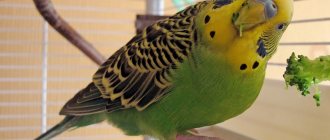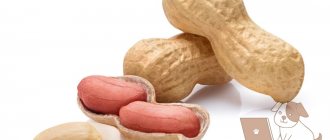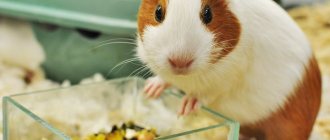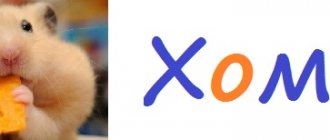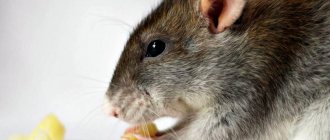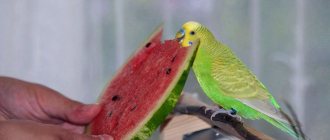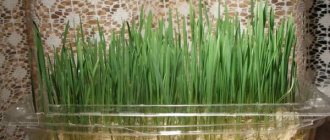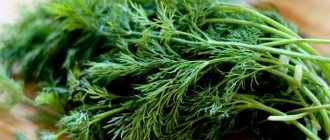Sometimes owners doubt which fruits can be given to parrots and which should be discarded. Birds living in their natural environment instinctively distinguish edible fruits from poisonous ones. You should not deprive your feathered pet of tasty and healthy treats - they are necessary for health. You can pamper your parrot with bright, sweet delicacies and reward him for good behavior.
Who shouldn't
Owners of miniature dogs are wondering if Yorkies can eat watermelon.
Veterinarians respond with a categorical refusal. This berry can cause allergies in representatives of the breed, so it should be completely excluded from the menu. Additionally, sweet treats should not be offered to puppies until they are three months old. The digestive system of these crumbs has not yet formed, so the berry can cause diarrhea.
Watermelons are tasty, perfectly quench thirst, and therefore dogs often like them
Veterinarians note that they are allowed to be used for dog meals, but this should be done very carefully and in small portions
How often can you include it in your diet?
The general rule for feeding fruits is to give them every day.
However, some of them require a special approach:
apple and pears – you don’t have to limit their consumption, because they are quickly digested and absorbed by the bird, and consist exclusively of useful substances; bananas - to make the parrot beautiful and slender, you will have to limit it to a couple of pieces a day; grapes are a fairly acidic product and large quantities can increase the acidity of the stomach. If you limit 2-3 pieces per day, your pet will receive only beneficial substances
The berries need to be peeled, but let the grape seeds remain, as they are easily digestible and beneficial for birds; pomegranate is an incredibly healthy product, but it is important to give it with extreme caution according to the plan. Start with one grain a day and then every day one more grain. This way the bird’s body will be able to adapt to the new product and get the most from it.
A budgie can only digest 1/6 of a pomegranate per day; orange – like other citrus fruits, you should limit it to one small piece per day.
Healthy vegetables for birds
Vegetables are allowed to be added as complementary food to budgies from their very birth. The fruits must be washed well beforehand and given in small portions.
Hot and sweet peppers
Sweet peppers contain iodine, potassium, and sodium. All these microelements are necessary for the normal functioning of the bird. Two pieces with seeds are enough for a parrot per day.
Pepper is also beneficial for your budgie.
Know! Giving your pet hot peppers is strictly prohibited.
Swede
Rutabaga contains iron and potassium, which have a good effect on the parrot's blood formation. It can be given daily. There is no need to peel the vegetable. The daily norm is 30-40 g.
Beet
This vegetable is a rich source of fiber and microelements, therefore it has a good effect on the digestion process. It should be given in slices of 20 g.
Beets can accumulate large amounts of nitrates, so I recommend blanching them first. Finely chopped tops can also be introduced into a parrot's diet.
How to train a parrot to eat vegetables and fruits. How to teach a parrot to eat sap. Part 1
Cabbage
You can use both cauliflower and broccoli. They contain all the microelements necessary for the life of wavy fish. First, pour boiling water over the inflorescences for 5 minutes. I also recommend grating the stalk and giving it to the parrot in a small amount, mixing it with grains or porridge.
Turnip
This rhizome contains folic acid, which normalizes the process of hematopoiesis. The daily norm for a wavy parrot is 30 g. Before giving pieces of turnip to a parrot, it must be blanched.
Potato
The tubers contain starch, which is difficult to digest, as well as solanine, a toxic substance, so it is not advisable to give it to a parrot as complementary food.
Vegetables for parrots
Tomatoes
Tomato is an antioxidant. It strengthens the immune system and has a bactericidal effect. Only ripe fruits are suitable for a parrot. There is no need to peel the tomato. It needs to be chopped and added to the grain feed along with the seeds.
cucumbers
If the cucumber is fresh, it contains vitamin E and a lot of water, which your pet needs to avoid dehydration. There is no need to process or peel the vegetable. Daily norm – 40-60 g.
Carrot
Carrots, as well as their tops, contain carotene, a rich vitamin complex and iron. They strengthen the cardiovascular system. Give to pets in grated form. I recommend mixing it with boiled yolk or cottage cheese.
Celery greens
Celery root itself is oversaturated with essential oils, so it is prohibited for feeding a parrot. However, its tops contain macroelements that improve the digestive process. Greens need to be cut and added to the main feed.
Fruits and berries for parrots
Berries for the parrot
Parrots can eat not only fruits - they love to feast on berries. Make sure you always have fresh, dried or frozen fruits in stock:
- Rowan;
- currant;
- irga;
- rose hip;
- honeysuckle;
- raspberries;
- gooseberry;
- chokeberry.
At the beginning of summer comes the season of fragrant strawberries. It contains vitamin C and antioxidants, so its benefits are undeniable. The answer to the question whether a parrot can eat strawberries is only positive if the amount of nitrates does not exceed the norm.
The gifts of the swamp are tasty and healthy: cranberries, lingonberries, blueberries, cloudberries. Birds often peck at the berries, getting to the seeds - their favorite food.
Frozen berries retain all the vitamins, so this method of preparation is best suited. You should not pour berries into the feeder straight from the freezer; let them melt, otherwise the bird will catch a cold. You can make compote without sugar from dry berries. Fruit and berry seeds are not garbage, they are needed for training and strengthening the beak. Birds have fun by chewing shells with their beaks.
Tree branches - how to give?
If you have already had parrots, you probably know how much they love to “chew” everything. Therefore, it is worth placing branches of fruit trees in the cage. They will be both a toy and food.
Choose trees away from roads and industrial areas. Inspect the branches for resin.
After pruning, the branches are soaked in water for 4 hours, washed and doused with boiling water. Which plant branches can be given to a parrot?
- apple trees,
- birch trees
- and you,
- rowan,
- viburnum,
- sea buckthorn,
- hazel.
You can also trim currant and raspberry bushes.
Kiwi for a parrot
The parrot, in addition to grain mixtures, eats fruits and vegetables. Kiwi will be good for a parrot. Fruits will give him the daily necessary vitamins and minerals that will support the high vital activity of the bird’s body.
To strengthen the immune system, you need to give your budgie kiwi. This fruit contains a large amount of vitamin C, which improves immunity and protects the body from viruses and pathogenic bacteria. Peel before serving. The fruit should not be too soft or hard. These qualities indicate immaturity or overripeness. These are not suitable for a parrot.
It happens that a parrot does not show interest in food that is new to it. Do not worry. You can even serve it in different ways. If you don’t eat chopped pieces in a saucer, you can make it in the form of a garland and hang it in a cage, or try grating it. It takes time and patience and everything will work out.
Kiwi budgies can be offered slices, pureed, large pieces, or even freshly squeezed juice. Experiment and choose the option that your pet likes.
It is important to know! When serving fruit desserts, do not overdo it with the quantity. A parrot can consume 2-3 fruits per week without harming its health.
Fruits must be fresh and well washed. If you do not follow these hygiene standards, your feathered pet may get sick.
How to teach a parrot to eat fruit
When the chick is actively interested in everything around him, you need to start feeding him fruit. But what if you bought an adult with character? A wayward pet may stubbornly refuse succulent feeding, and this will have a bad effect on its health.
Like picky children, birds need to be introduced to new food gradually, patiently, unobtrusively. Experiment, act outside the box, be creative. There are many ways to outwit a cautious pet:
- Peel a ripe banana for your parrot, press grains from dry food into the pulp and place it between the bars of the cage. When pulling out familiar food with its beak, the pet will involuntarily try a banana.
- Chop or grate fruits, puree them, or squeeze out juice. Make fruit salads. Different shapes, textures and colors of food can attract birds.
- Mix small particles of fruit into the main feed. There is a chance that your ward will grab a new product along with the grain. Of course, such a mixture cannot be left in the feeder for a long time, otherwise it will spoil.
- Take the fruit holders, hang them and place them inside the cage. A parrot may mistake fruit kebabs on skewers for a toy. Perhaps, while playing, he will swallow a piece and taste it.
- Pour boiling water over dried apricots, prunes, dry apples, and figs. The bird may not like raw fruits, but it will love dried ones. Just not candied fruits - they contain a lot of sugar.
Worth a try! Demonstratively, gnawing on a juicy pear, apple, and peach with gusto. An inquisitive bird will want to know what the owner is eating that is so delicious, it will try to peck at a piece.
One of the easiest methods to introduce a bird to eating fruit is to organize collective feeding. In a single cage space, being close to its neighbors, the parrot will try to grab food before everyone else. It's okay if the cereal and juice fly all over the place. Some portion of the treat will still end up in the stomach.
How to give a parrot cheese and cottage cheese
When thinking about whether a parrot can have cheese, the owner of a tropical bird should carefully remember several important points:
- The cheese must be homemade. As a last resort, a small amount of dietary cheese is allowed - without salt, fat and chemical preservatives.
- Store-bought regular cheese is not suitable for a parrot! A reaction to such a product may include: stomach upset, spontaneous feather plucking, poor health, weakness, deterioration in the appearance of the plumage.
- Give cheese in minimal quantities.
- Put the cheese in the cage for no more than half an hour. If during this time the parrot does not touch the product, it must be taken out and thrown away. Fermented milk cheeses are a perishable product, and instead of being beneficial, they can cause enormous harm to your pet’s health.
Some experts are divided on whether a parrot can eat cheese. Some believe that the value of the product when served wisely is necessary for the wavy, others refute this idea, since cheese is a fermented milk product that negatively affects the intestinal microflora of tropical birds. There is an opinion that it is better to give preference to cottage cheese instead of cheese: it is both healthy and harmless. Within normal limits, of course.
Are there any dangers associated with feeding your parrot watermelon?
Apart from the dangers we've already talked about, there are no dangers associated with feeding your parrot watermelon - only benefits!
Always remember that you should never feed your parrot watermelon rind, and if you do, make sure it is organically grown.
To prevent choking, any seeds should be soaked overnight to soften them and make them easier to eat.
Additional note: If your parrot has not eaten a watermelon within 2 hours, throw it in the trash. After two hours, bacteria can begin to build up, which could make your parrot sick or sick.
What greens are good for parrots?
A balanced diet includes fresh grass. There is nothing difficult in supplying your pets with lush green stems even in winter. Salad greens grow beautifully in boxes on the windowsill, pleasing the eye with bright colors. In spring and summer, you can pick grass on lawns away from dusty roads:
The collected greens must be washed in running water, and the fleshy leaves must also be scalded with boiling water.
To maintain the health and cheerful mood of your parrot, fulfill your main task - feed it healthy and satisfying. Observe the behavior of your feathered pet, control the amount of food eaten, and adjust the diet taking into account established habits. And don't forget about delicious fruits and vegetables.
Why does a bird refuse fruit?
There may be several explanations for this. Perhaps the bird is simply afraid to try unfamiliar food, since it has never seen anything like it before. Such fears worry both chicks and adults. If this is your case, offer your bird fruit more often. And before you give a piece to the bird, try it yourself. And so that the pet can see it.
A parrot may also refuse fruit because it was once treated to a spoiled or unripe fruit, after which it felt unwell or became completely ill. Such impressions are remembered in order to prevent the bird from eating food that is inappropriate for it. How to save a bird from an unpleasant experience? Replace it with a new one. Look for the fruit that the bird will perceive positively.
His childhood can tell you why a parrot doesn’t eat fruit. If you took a bird from a reseller or a pet store that sells rare birds, your pet probably entered the country illegally. Such birds are transported in terrible conditions and fed only to last until they are sold. Having become accustomed to a meager diet, usually limited to grain crops, the parrot cannot accept other food for a long time. However, this does not mean that attempts to accustom him to fruits should be abandoned. Continue to arouse interest in healthy food, and one day the bird will be tempted by the bright fruit.
A bird may also ignore fruit because it is sick. She may have gastrointestinal problems that prevent her from enjoying plant-based foods. If you notice a deterioration in your bird's appetite or problems with stool, contact your veterinarian.
You can ask an ornithologist about why your parrot does not eat fruit, if this specialist has been observing your pet since childhood. Perhaps you simply offer not the ripest and not the most delicious fruits?
The parrot does not want to eat fruit: what is the reason
Parrots are curious, but they are afraid of new things. If the bird has never seen or tasted the fruit, it will be difficult to convince it to eat. No matter what form you offer the appetizing fruits, the bird simply ignores the treat. Also, not all fruits are readily eaten by a parrot when it is sick.
Birds in pet stores and on the market are most often kept in an economy mode: cheap food is used, the cage is rarely cleaned, and several birds live in crowded conditions. Constant stress causes a feeling of fear and wariness in birds. They are afraid to try something new, and they get used to a simple grain mixture.
What fruits can a parrot eat: list and feeding tips
Most owners of feathered pets offer their pets grain food as the main diet. However, this is not enough to provide the body with the necessary amount of nutrients. In nature, dry grain feed is not the basis of the bird’s diet. According to ornithologists, fruits for parrots are a mandatory component in the daily menu.
Here you will find the answer to the question: what fruits can budgies, cockatiels, lovebirds, grays, cockatoos, and Amazons eat? And also the answer to the second equally important question, which many often forget about - which ones are not allowed.
Can parrots eat watermelon seeds?
Yes, parrots can eat watermelon seeds. Just like the juicy part of the watermelon, the seeds also contain many beneficial nutrients. Nutrients found in watermelon seeds include copper, zinc, magnesium, folic acid and potassium, each of which has its own health benefits. Specifically, watermelon seeds may be beneficial for heart health, bone growth, feather growth, and metabolism.
With that said, most parrot owners soak the seeds overnight before feeding them to their parrots. This is because the seeds can be hard and difficult to peck. Soaking them will make them easier for your parrot to eat and will help reduce the risk of choking.
What to look for when choosing vegetables and fruits
When choosing an assortment of vitamins for your budgerigar, focus on the appearance of the fruits and root vegetables. They should not raise suspicions about quality
Choose fruits and vegetables that are ripe, fresh, and free from mold and rot. Don’t try to experiment with nutrition, just give what you know. If possible, feed only seasonal fruits.
The main diet of a budgerigar is a grain mixture, but a vegetable and fruit menu is also important in the pet’s diet. Vitamins and minerals play an important and major role in maintaining health.
When eating a variety of food, the parrot’s body receives all kinds of components that saturate the body with all the necessary nutrients.
Follow the rules and regulations for feeding your pet. In return, you get a healthy, active and good-humored parrot that will delight you for many years of life.
Leave your comments and share on social networks.
What's prohibited
The curiosity of budgerigars sometimes backfires on their owners, so you need to keep an eye on what the pet pecks.
Ornithologists categorically prohibit feeding parrots from the common table, because... Human food is very poorly tolerated by birds and can cause irreparable damage.
Do you give your parrot fruit?
Yes No
The following are contraindicated for a feathered pet:
- papaya;
- mango;
- pomelo;
- persimmon;
- avocado.
These fruits are picked while still unripe, and they reach their ripeness only in the carrier’s car. In addition, their juice is rich in glycosides, papin and various alkaloids, which are poison for parrots.
Birds are not against dried fruits, but they can only be given after preliminary soaking . At the same time, all types of candied delicacies are contraindicated, but you can offer the bird dried fruits (raisins, prunes, dried apricots) pre-steamed with boiling water.
What not to give to a budgie
The budgie is quite inquisitive and often shows interest in everything you eat.
There is no need to add various nuts and seeds to your diet. They are fatty and often difficult to digest, leading to indigestion. When feeding your pet fruits and vegetables, follow the norm. The main thing is to know which of them can worsen your health.
There are individual intolerances of the body that cause disorders, pay attention to this. Immediately exclude such bait from your pet’s menu.
There are also vegetables that contain a high content of essential oils, corned beef and other non-useful substances. They are harmful to the parrot and lead to poisoning and death:
- raw potatoes;
- radish;
- green onion or tuber;
- garlic;
- celery;
- radish;
- eggplant.
There are also greens that should not be given:
- parsley;
- dill;
- cilantro.
But there is no need to completely limit greens. Feed with young leaves from fruit trees. Sprouted leaves of wheat or oats. Lettuce leaves, clover.
If you have doubts about giving or not giving, then give preference to what you know. Experimenting with food is not recommended.
We recommend reading: How to properly trim a budgerigar's claws
Right choice
The first thing a parrot owner should pay attention to when buying fruit is the season. Birds are very sensitive to pesticides and chemicals, so they will either not eat fruits grown in a greenhouse at all, or they will simply be poisoned.
On supermarket shelves, products are often treated with special products that give them shine and shine. Despite their attractive appearance, such fruits are not recommended to be given to birds. So it’s worth looking at the naturalness of the look and the consistency of its consistency.
Fruits should not raise any suspicion about their quality. Freshness, ripeness, absence of mold and rot are prerequisites for quality nutrition. It is worth looking at 6-7 fruits to understand the quality of the batch.
What not to give to a budgie
The budgie is quite inquisitive and often shows interest in everything you eat.
There is no need to add various nuts and seeds to your diet. They are fatty and often difficult to digest, leading to indigestion. When feeding your pet fruits and vegetables, follow the norm. The main thing is to know which of them can worsen your health.
There are individual intolerances of the body that cause disorders, pay attention to this. Immediately exclude such bait from your pet’s menu.
There are also vegetables that contain a high content of essential oils, corned beef and other non-useful substances. They are harmful to the parrot and lead to poisoning and death:
- raw potatoes;
- radish;
- green onion or tuber;
- garlic;
- celery;
- radish;
- eggplant.
There are also greens that should not be given:
- parsley;
- dill;
- cilantro.
But there is no need to completely limit greens. Feed with young leaves from fruit trees. Sprouted leaves of wheat or oats. Lettuce leaves, clover.
If you have doubts about giving or not giving, then give preference to what you know. Experimenting with food is not recommended.
Herbs and greens
Some types of greens can be harmful to your pet's body. You should not give him parsley, dill and green onions. It is strictly forbidden to feed your budgie with tomato tops.
The benefits will be:
- horse sorrel,
- arugula,
- celery,
- plantain,
- clover leaves.
Wild plants should not be collected near the roadway.
Do not allow the parrot to peck indoor plants and bouquets - they are toxic to the bird.
Parrot cookbook
Sweet sticks with grains are the most popular treat for budgies to tame. This delicious toy is sold in any pet store. However, treat manufacturers often sin by including ingredients that are not the most beneficial for birds. So why not make a treat on a stick at home? You will need: a suitable sized twig, half a teaspoon of honey, half a teaspoon of water, a couple of pinches of flour and a grain mixture for small parrots (regular food will do). The base - the stick itself - should be washed well and calcined in the oven. When it is ready, you can start making the treats. Mix honey with water and add flour to the mixture, stirring continuously until it reaches the consistency of sour cream. Lubricate the stick generously with the resulting cream and roll it in the mixture of grains. All you have to do is wait until the honey cream dries, and you can treat the bird. Such a delicacy takes the place of dessert in the bird’s diet. It should not be given often. Use the stick as a reward, allowing the bird to peck at it for a few minutes every now and then.
Sprouted sprouts
It is necessary to include sprouted grain in a parrot’s diet so that its body receives vitamins E and B2.
How to properly prepare sprouts at home?
- Fill the bottom of a deep plate with grains, add water so that it covers them a little.
- Every 4 hours, change the liquid and rinse the grains.
- In a few days sprouts will appear. For a parrot, a shoot up to 2 mm in height is sufficient.
- Before giving to the bird, the sprouts are dried.
Before the first moult, small chicks are given 1 tsp. sprouts 2 times a week. Then once a month.
Fruit menu
Introduce fresh, dried and dried fruits into your parrot's menu. But keep in mind that it is better to make the preparations yourself. When eaten, the bird will not only receive pleasure, but also the necessary content of vitamins and minerals that are necessary daily for the good functioning of the body. Each fruit contains a different amount of useful components. When feeding fruit treats, follow the norm.
Many owners ask various questions: can budgies eat tangerines or kiwis, and what fruits to feed and which not. Let's begin to clarify these issues.
We recommend reading: Lipoma in a budgie
Here are the fruits you can give your budgies:
- Bananas are very nutritious, rich in calcium, magnesium and potassium. Content of fiber, all kinds of useful acids. A couple of pieces a day will be enough to maintain and saturate the body with essential vitamins;
- Apple is a vitamin cocktail, enzymes that are good for the digestive tract. Contains tannins, plant fibers and organic acids. The norm need not be limited;
- pomegranate is very necessary, its substances ensure the functioning of the cardiovascular system. A few grains a day, but introduce them gradually, starting with a minimum amount. The norm per day is no more than 1/6 part;
- kiwi – strengthens the parrot’s immunity. The fruits are leaders in vitamin C content. Protects the body from viruses;
- pears - for digestion, which is promoted by pectin. The composition contains carbohydrates, iron, phosphorus. Peel the skin first. Give in any quantity;
- orange – contains fiber, essential oils, carbohydrates. Well protects the body from viral and infectious diseases. A small piece a day. Also add other citrus fruits to the menu. Dilute lemon juice with water;
- grapes are rich in microelements and vitamins. Give 2 - 3 berries without skin, there is no need to remove the seeds. Cleanses the body and removes toxins;
- pineapple - the composition has a positive effect on muscle tissue and strengthens blood vessels. Has general strengthening properties. Destroys proteins, helps digest and absorb protein foods.
- apricot is the owner of sugar, inulin, starch, provitamin A, iron, acid. Supports the immune system, prevents cardiovascular diseases;
Persimmon, mango, papaya, avocado - these exotic fruits are not recommended to be given to your pet.
All fruits should be peeled and cut into pieces. Remove the seeds, which are dangerous because they contain hydrocyanic acid. It is recommended to feed with vitamins from your garden, so-called natural products. Store-bought fruits often contain an abundance of nitrates and other substances that are detrimental to the health of the parrot.
We recommend reading: How to properly trim a budgerigar's beak
Mineral supplements
The key to feeding a parrot is mineral supplements. For example, birds will benefit from feed chalk saturated with calcium. You need to buy special chalk for birds, because chalk intended for rodents can harm the health of the parrot. Other sources of minerals:
- Combined mixtures. Those sold in pet stores contain a 70:30 ratio of shell rock to chalk. Manufacturers often add small amounts of eggshells and charcoal to them.
- Stones. They come with iodine, iron, zinc, magnesium and calcium. These elements are responsible for the health of the skeleton and endocrine glands.
- Sepia (cuttlefish shell). Rich in Na, K, Mg, P, which protect the beak from deformation. Give preference to sepia white with a slight yellow tint.
- Organic sand. Consists of crushed shells. Promotes grinding of food in the crop.
- Chicken egg shell. Due to the potassium content, it strengthens the skeleton and creates a protective layer of the shell when laying eggs.
- Birch charcoal. A storehouse of calcium and iron. It will be a means of detoxification for the pet.
Large whole minerals are attached to the bars of the cage, and the mixture is poured into a plate.
The benefits of eggs for a budgie
This product for your feathered pet acts as a natural source of:
- natural animal protein;
- vitamins and minerals beneficial to the bird’s body.
If the established permissible daily intake is observed, including the product in the parrot's menu will only bring benefits to the pet.
As you know, a chicken egg consists of two parts:
Despite the fact that the white of a chicken egg consists of 90% water and only 10% protein, it contains large quantities of vitamins such as:
In addition, egg whites are rich in minerals:
As for the second component - the yolk, its composition includes:
- proteins;
- all types of vitamins (with rare exceptions);
- iron;
- fats;
- calcium;
- organic substances with a complex composition (including lecithin and phospholipids);
- cholesterol.
The yolk has great nutritional value and is significantly superior to egg white in terms of its usefulness.
To give or not to birds
Most parrots enjoy eating both the pulp and the seeds of watermelon. The berry can and should be given to birds, especially during the molting period, when the animal especially needs vitamins and other useful elements.
Some individuals react extremely strongly to watermelons. In this case, problems can arise both in picky birds, such as budgies, and those predisposed to allergic reactions. Here, like with people, everything is individual.
Wavy
Small budgies will happily accept the treat of watermelon pulp. It is pliable and breaks easily: the animal does not have any problems with swallowing. But the seed is a different matter. Large black seeds can get stuck in the bird's crop. Therefore, before serving the berries, you should get rid of the seeds . The bird freely swallows and digests small white seeds.
Lovebirds
Despite the similar size to budgerigars, the beak of lovebirds is noticeably stronger. The bird calmly splits any watermelon seeds to an acceptable size. Therefore, there is no need to worry about subsequent problems with the gastrointestinal tract.
Watermelon rinds also contain a number of elements useful for the animal’s body (pectins, amino acids, proteins, sucrose, etc.). However, they can be dried for the winter.
Large breeds of parrots
There are no restrictions for large birds. They freely deal with both pulp and seeds. The only thing is that some breeds, for example, Grays, have allergic reactions to certain components of watermelon. Therefore, for the first treat, you should limit yourself to a small piece of berry, and then wait 20-30 minutes before serving a new portion.
Can birds eat clay?
Budgerigars should always be provided with enough clay for their needs, as clay absorbs all toxins and removes them from the body. Despite the high level of development of medicine, the role of clay in metabolism has not yet been established.
Budgerigars living outside the wild and experiencing a clay deficiency may subsequently produce offspring suffering from rickets. There are a large number of assumptions about why birds in the wild try to extract clay for themselves in their favorite ways, so it is better to take this as a given, which is beyond doubt.
There is a myth that is very common among bird owners that fruit seeds are a source of toxic effects on the bird’s body. The seeds contain a huge amount of fat and protein, which is already an ideal platform for the development and reproduction of mold fungi. Therefore, first of all, you need to adhere to the rules for storing such products. They should be stored in a dry, cool and dark place.
Before giving the seeds to parrots, you should break a few grains to make sure that the product has not spoiled. Every summer you should make supplies for the winter; you do not need to store such a product for more than 12 months.
What vegetables should I give my parrot?
Fresh vegetables are an essential nutritional element for poultry. There is no point in giving boiled or stewed vegetables, since beneficial substances are lost during heat treatment. It will be great if you can not only teach your parrot to eat fruits, but also raw vegetables:
- carrots, they contain a lot of vitamin A;
- turnips, which can replace apples with their sweetness;
- beets, valuable for microelements;
- pumpkin, which has vitamins A, D, E, K;
- cucumber with its delicious seeds;
- zucchini, rich in dietary fiber;
- tomato with antioxidant - lycopene;
- bell pepper
If you doubt whether your budgie can eat cabbage, feel free to disassemble the cabbage into leaves and treat your pet. Cabbage is a long-lasting vegetable; in the cold season you cannot do without such feeding.
If poisoning - what to do
Sure signs of poisoning are apathy: the parrot huddles in the corner of the cage and practically does not react to its surroundings. This may also include loss of appetite, loss of coordination, trembling, vomiting and convulsions. At the first signs of poisoning, the surest option is to contact a veterinary clinic. In difficult cases, it is more advisable to call a specialist to your home rather than add stress to the bird with a trip.
The use of medications is not recommended. Only a veterinarian can make a correct diagnosis. It may turn out that the parrot does not have poisoning at all, but a viral infection. Unprofessional actions by the owner will only make the situation worse.
During the period of treatment and prevention, the cage must be thoroughly cleaned and disinfected. This applies not only to the frame, but also to the accompanying equipment: toys, feeders, bathing bowls, drinking bowls and other accessories. If there are two or more birds, then healthy birds urgently need to be transplanted into another cage to prevent infection.
Fruits, vegetables and berries
If you have a cockatiel parrot at home, its care, maintenance, and feeding, like other types of birds, must be carried out according to certain rules and taught to them from a very early age. Fruit and vegetable additives must be on the poultry menu. If a bird refuses to eat a healthy product, then the owner’s task is to convince it otherwise. for example, offering the parrot beautifully chopped carrots. Be creative and present food to the bird in different forms and designs! Be patient and don't give up.
Despite all the usefulness of fruits, the right question for the owner would be: Which fruits can parrots eat and which ones can’t? It will be useful to include in your pet’s diet: apricot, cherry, pineapple, plum, apple, pear, peach.
Feeding your cockatiel, Gray or other bird species can be supplemented with berries and citrus fruits such as: oranges, watermelons, gooseberries, pineapple, lingonberries, viburnum, strawberries, blueberries, cranberries, kiwi, red and black currants, tangerines, kiwi. Just in case, it is better to remove the peel from citrus fruits, and remove the pits from fruit crops such as cherries, apricots and plums. Berries collected in the summer can be frozen and offered to the parrot defrosted in the winter.
Healthy vegetables for parrots are carrots, pumpkin, zucchini, tomato, cucumber, pepper, zucchini, and rutabaga. Cauliflower and Brussels sprouts, broccoli, beets, turnips and green peas can also be given to birds, but they must first be blanched (scalded and left in boiling water for a few minutes). Some bird owners know what vegetables their parrot can eat, but they boil them before putting them in the cage. It is better to offer them fresh, since when cooked, vegetables will lose all their beneficial vitamins and microelements.
When feeding a cockatiel parrot or other species of these birds, you should not include: potatoes, avocados, fresh mangoes, persimmons, fresh papaya, candied fruits sold in stores
Please note that mango and papaya are found dry in mixtures, in which case they are harmless
Why you shouldn't give too much watermelon
Despite the low calorie content of this pumpkin berry (38 kcal per 100 g), watermelon has a very high glycemic index (75). Excessive consumption of such foods puts a lot of stress on the pancreas. When carbohydrates with a high glycemic index are broken down, a sharp jump in blood sugar occurs, which has a detrimental effect on the health of such a fragile creature as a parrot. Therefore, watermelons should be eaten in moderation, and not only by birds, but also by people. By the way, the same goes for melon, which parrots also love to eat.
Fruit menu
Introduce fresh, dried and dried fruits into your parrot's menu. But keep in mind that it is better to make the preparations yourself. When eaten, the bird will not only receive pleasure, but also the necessary content of vitamins and minerals that are necessary daily for the good functioning of the body. Each fruit contains a different amount of useful components. When feeding fruit treats, follow the norm.
Many owners ask various questions: can budgies eat tangerines or kiwis, and what fruits to feed and which not. Let's begin to clarify these issues.
Here are the fruits you can give your budgies:
- Bananas are very nutritious, rich in calcium, magnesium and potassium. Content of fiber, all kinds of useful acids. A couple of pieces a day will be enough to maintain and saturate the body with essential vitamins;
- Apple is a vitamin cocktail, enzymes that are good for the digestive tract. Contains tannins, plant fibers and organic acids. The norm need not be limited;
- pomegranate is very necessary, its substances ensure the functioning of the cardiovascular system. A few grains a day, but introduce them gradually, starting with a minimum amount. The norm per day is no more than 1/6 part;
- kiwi – strengthens the parrot’s immunity. The fruits are leaders in vitamin C content. Protects the body from viruses;
- pears - for digestion, which is promoted by pectin. The composition contains carbohydrates, iron, phosphorus. Peel the skin first. Give in any quantity;
- orange – contains fiber, essential oils, carbohydrates. Well protects the body from viral and infectious diseases. A small piece a day. Also add other citrus fruits to the menu. Dilute lemon juice with water;
- grapes are rich in microelements and vitamins. Give 2 - 3 berries without skin, there is no need to remove the seeds. Cleanses the body and removes toxins;
- pineapple - the composition has a positive effect on muscle tissue and strengthens blood vessels. Has general strengthening properties. Destroys proteins, helps digest and absorb protein foods.
- apricot is the owner of sugar, inulin, starch, provitamin A, iron, acid. Supports the immune system, prevents cardiovascular diseases;
Nutritional value of watermelon for parrots
Just like humans, parrots can reap the benefits of many of the nutrients found in watermelon. Here are a few of the nutrients watermelon provides and how they benefit your bird:
Fiber
Fiber is extremely beneficial for your parrot and can help with the digestive tract.
Vitamin C
Helps boost parrots' immunity and improve skin condition.
Kholin
Helps with muscle coordination and movement and supports memory of cellular structure. Also helps reduce inflammation.
Vitamin A
Helps develop and maintain feather health.
Potassium
Helps improve heart health and control blood pressure.
Magnesium
Helps in the development of healthy feathers, as well as the development of bones and neurons in the brain. Also plays a role in heart health and muscle coordination.
